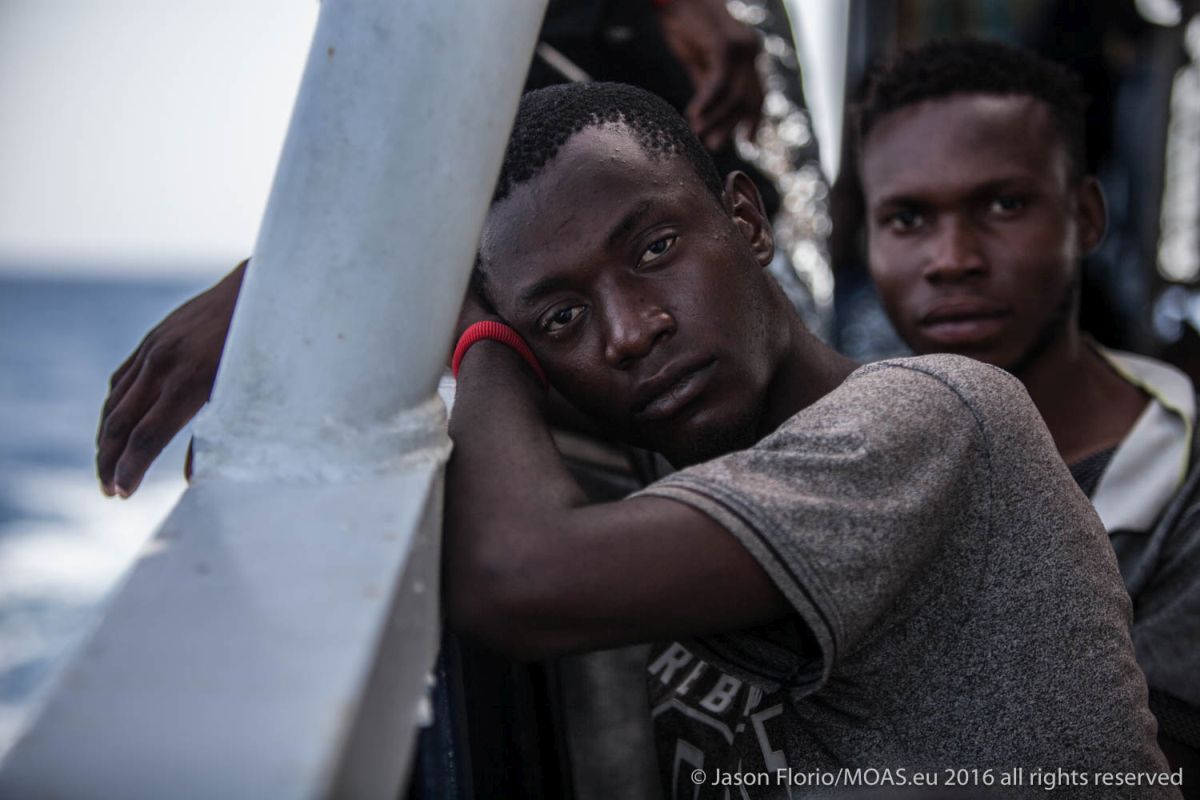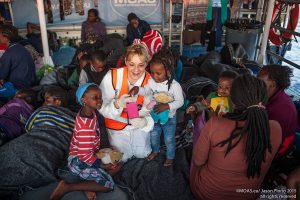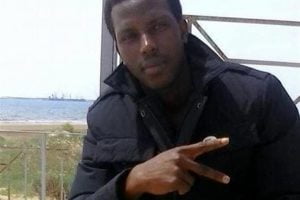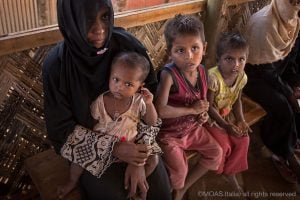Il 29 Maggio l’associazione Carta di Roma, insieme a Cospe e Osservatorio di Pavia, ha presentato il rapporto “Navigare a vista” come riflessione sul ruolo delle ONG attive in mare.
Il rapporto analizza il modo in cui viene raccontato il lavoro di ricerca e soccorso e si concentra proprio sulla narrazione che viene fatta dai media, sottolineando come le organizzazioni umanitarie usino un linguaggio semplice ed immediato per far conoscere le storie delle persone salvate.
Fin dalla prima missione nel 2014 ci siamo preparati al meglio contando su uno staff altamente specializzato che garantisse i migliori standard operativi sia durante la fase dei salvataggi in mare che dopo nel momento del post-soccorso.
Ma, oltre l’aspetto tecnico e la collaborazione con tutte le entità coinvolte in mare e a terra, MOAS ha puntato da subito sulla restituzione della dignità negata a queste persone.
Non migranti, non rifugiati, non migranti economici e tanto meno clandestini.
Semplicemente persone.
E quindi abbiamo coltivato una dimensione profondamente umana: abbiamo parlato con loro e ne abbiamo ascoltato le storie. E non lo abbiamo fatto per semplici motivi statistici o demografici -che pure ci aiutano a comprendere meglio le migrazioni attuali. Lo abbiamo fatto per la curiosità di conoscere l’altro: lo abbiamo fatto perché in ogni donna o uomo in fuga rivediamo noi stessi, perché nei loro figli vediamo i nostri stessi figli.
“Il racconto del soccorso in mare ha la potenza espressiva per umanizzare il fenomeno delle migrazioni”*
Abbiamo raccontato sui social le storie di minori non accompagnati, di famiglie siriane quasi naufragate nell’Egeo, di uomini e donne alla ricerca di un futuro di pace e di chi non ce l’ha fatta. Abbiamo fatto tutto il possibile per far emergere le persone al di là dei numeri, per far affiorare i volti dalla massa indistinta che intimorisce guardata da uno schermo televisivo.
Il ruolo della narrazione è fondamentale perché con le parole costruiamo dei ponti che ci legano agli altri.
La narrazione è cruciale per sviluppare l’empatia necessaria a creare un sentimento di identificazione e fratellanza che permette di andare oltre la paura del “migrante” e riconoscerlo per ciò che semplicemente è: un essere umano come noi.

Il potenziamento del salvataggio in mare era stato chiesto a gran voce dopo il terribile naufragio dell’Ottobre 2013 sia dall’allora Ministro degli Interni, sia dal Papa. Quelle morti sembravano tanto più oltraggiose quanto più avrebbero potuto essere evitate. Eravamo ancora lontani dalle assurde accuse di collusioni con trafficanti e scafisti tramite una sorta di servizio taxi per assistere barconi stracarichi e in difficoltà. Soprattutto ancora nessuno avrebbe osato parlare di morti in mare come deterrenti alle partenze dalle coste libiche sulla base dell’idea che i barconi partano perché le ONG operano in mare per andarli a prendere.
Purtroppo, recentemente grazie a un politica spregiudicata che fa campagna elettorale sulla pelle della gente, il dibattito si è inasprito e anche il salvataggio in mare -prima al riparo da illazioni e sospetti- è sotto accusa e si cerca di criminalizzare la solidarietà.
“In questa sovrabbondanza comunicativa, un elemento emerge su tutti: il sospetto. Il sospetto calato sull’azione degli operatori soprattutto quelli delle Ong avvolge tutta la sfera del soccorso in mare”*
Notizie false, dichiarazioni, presunte prove di legami con trafficanti, domande poste solo per screditare o infangare chi si adopera per salvare vite umane.
E ora cosa rimane di quelle illazioni? Cosa rimane della valanga di fake news che hanno dominato i media per mesi?
Resta il clima di terrore e sospetto che sta avvelenando tutto, spegnendo ogni barlume di misericordia, empatia, solidarietà. Resta l’incapacità di accettare il buono e fidarsi degli altri: tutto va messo sotto accusa, tutto sembra regolato da assurde dietrologie che non hanno bisogno di essere provate e documentate. Basta spargere il germe del sospetto per far sì che contagi tutto, sporcando qualunque cosa ci sia di buono intorno a noi e attivando la macchina del fango.
Ma se non siamo più capaci di riconoscere, apprezzare e valorizzare il bene e la solidarietà, cos’altro ci resta oltre il sospetto e le polemiche infondate?
*Entrambe le citazioni sono state estrapolate dal report.
[donate_button_blog]



